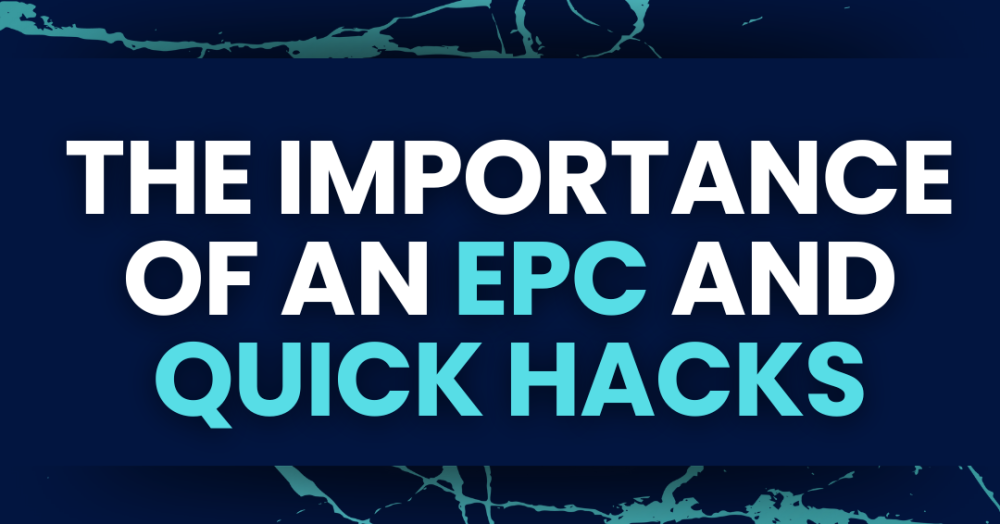When it comes to buying, selling, or renting out a property in the UK, one critical factor that you shouldn't overlook is the Energy Performance Certificate (EPC) rating. By understanding how EPC ratings impact property value and learning quick fixes to increase the rating can help you save you thousands.
What is an EPC Rating?
An EPC (Energy Performance Certificate) rates a property’s energy efficiency on a scale from A (most efficient) to G (least efficient). It also provides recommendations for improving energy performance. By law, an EPC is required whenever a property is built, sold, or rented.
Why EPC Ratings Matter
- Property Value: Properties with higher EPC ratings are increasingly attractive to buyers and investors. With energy costs on the rise, an energy-efficient home can command a higher sale price.
- Rental Viability: Since April 2020, rental properties in England and Wales must have a minimum EPC rating of E. There is ongoing discussion about raising this threshold to a C by 2028, which could have significant implications for landlords.
- Running Costs: Homes with better EPC ratings are cheaper to heat and run, making them more desirable and sustainable.
- Mortgage & Lending: Some lenders offer green mortgages or incentives for properties with high EPC ratings, making them more appealing to eco-conscious buyers.
How EPC Ratings Affect Property Value
Research from Rightmove and other UK property platforms shows that improving a property’s EPC rating can increase its value by up to 14% in some cases. Better-rated homes are not only more marketable but also sell faster. As energy efficiency becomes a bigger part of the conversation, buyers are placing more weight on EPC scores during their decision-making process.
How to Increase Your EPC Rating with Minimal Investment
While some EPC improvements can be costly (like installing a new boiler or solar panels), there are several low-cost upgrades that can still significantly boost your rating:
1. Install LED Lighting
Replacing traditional bulbs with LED lights is one of the cheapest and easiest ways to improve your EPC score. It reduces electricity usage and is often recommended in EPC reports.
2. Draught Proofing
Sealing gaps around doors, windows, and chimneys can reduce heat loss and improve your home's thermal efficiency. This is a very cost-effective upgrade with a noticeable impact.
3. Loft Insulation Top-Up
Many homes already have some insulation in the loft, but topping it up to the recommended 270mm can boost your rating. Rolls of insulation are relatively inexpensive and easy to install.
4. Hot Water Tank Jacket
If you have an older hot water cylinder, adding an insulation jacket can significantly reduce heat loss and increase efficiency.
5. Smart Thermostat
Installing a smart thermostat allows for better temperature control and can reduce energy consumption, contributing to a better EPC score.
6. Upgrade to Thermostatic Radiator Valves (TRVs)
TRVs allow you to control the temperature in individual rooms, increasing heating efficiency without a full boiler upgrade.
7. Pipe Lagging
Insulating hot water pipes to prevent heat loss is a quick, inexpensive fix that can be completed in an afternoon.
Bonus Tip: Apply for Government Grants
There are several UK schemes available that offer funding for energy efficiency improvements. Check eligibility for the Energy Company Obligation (ECO4) or local authority funding.
Final Thoughts
Improving your EPC rating doesn’t have to mean spending thousands. With targeted, low-cost upgrades, homeowners and landlords can boost property value, comply with regulations, and attract more interest from buyers and tenants. As energy efficiency becomes increasingly important in the UK housing market, investing in your EPC rating is no longer optional—it’s essential.
If you're planning to sell or let your home, now is the time to review your EPC and consider these affordable improvements. Not only will you make your property more desirable, but you'll also be playing a part in creating a greener, more sustainable future. If you want someone to help you get the best price for your property, why not give us a call on 0121 681 6327.
